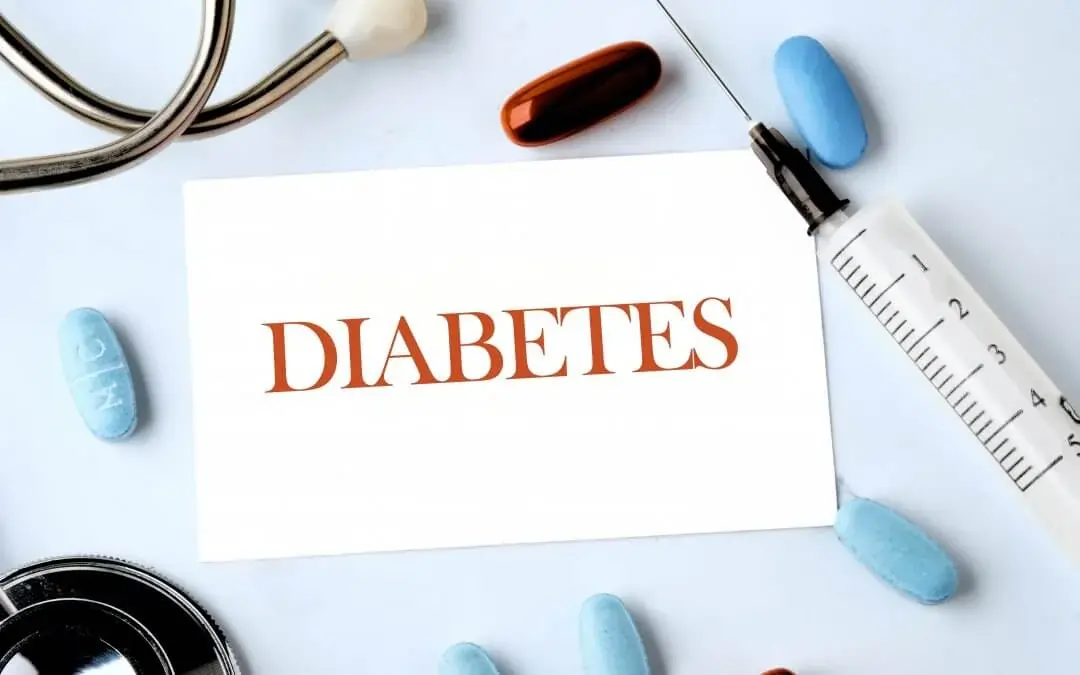Can Weight loss Reverse Diabetes?
Weight loss can play a significant role in reversing type 2 diabetes, particularly in its early stages. Shedding excess weight, especially visceral fat around the abdomen, improves insulin sensitivity and helps regulate blood sugar levels.
Lifestyle changes such as a balanced diet, regular exercise, and sustained weight management can even lead to diabetes remission in some individuals. However, the extent of reversal depends on factors like the duration and severity of diabetes, as well as individual metabolic responses.
Diabetes Reversal: What Is It?
When blood glucose levels remain normal for three months or more without taking diabetic medication, this is known as diabetes reversal or remission. It has been demonstrated that weight loss by bariatric surgery and/or healthy lifestyle choices can aid in reversing diabetes.
People with type 2 diabetes participated in a recent clinical trial that involved a lifestyle intervention program that included regular exercise and a low-calorie diet. Participants in the trial shed an average of 26 pounds over the course of a year, and roughly 61% of them were able to put their diabetes under control successfully.
The early phases of type 2 diabetes are when remission is most likely to happen. According to studies, remission can be attained with as little as 10% to 15% weight loss within two years after diagnosis. Remission is less likely in the later stages of diabetes because the body may no longer be able to produce insulin. However, by reducing their body weight by 20% to 25%, some individuals with advanced type 2 diabetes may be able to achieve remission.
Relationship Between Type 2 Diabetes and Weight:
Type 2 diabetes is one of the major health diseases that obesity greatly raises the risk of getting. Excess body weight and inactivity are closely associated with this kind of diabetes. Obesity is the primary cause of nearly half of all new cases of diabetes in the US each year.
The hallmark of type 2 diabetes is elevated blood sugar (glucose) levels. It happens when the body’s capacity to make or react to insulin is compromised. Insulin, a hormone that aids in the body’s cells using glucose as fuel, is released by the pancreas after meals. Insulin resistance is the inefficient utilization of insulin by cells in type 2 diabetes.
According to research, visceral fat—the fat that surrounds organs—and excess fat around the liver contribute to insulin blockage, which stops glucose from entering cells. The more body fat a person has, the more difficult it is for their cells to react to insulin as intended.
Although having excess weight anywhere on your body can raise your risk of type 2 diabetes, research indicates that those who have excess belly fat are more likely to get the condition.
Diabetes types 1 and 2:
The hormone that your pancreas produces is called insulin.
The pancreas releases insulin when your blood sugar (glucose) levels increase. As a result, glucose is transferred from your blood to your cells, giving you energy. Your pancreas ceases to release insulin as your blood glucose levels decline.
The way you metabolize sugar is impacted by type 2 diabetes. Your pancreas cannot overcome insulin resistance if you have type 2 diabetes because it does not create enough insulin. This results from Hyperglycemia or an accumulation of glucose in the blood.
When the body’s immune system targets healthy cells in the pancreas, type 1 diabetes, an autoimmune disease, results. It’s unclear why this occurs, although family history and genetics probably play a part. Your pancreas produces very little or no insulin if you have type 1 diabetes.
When type 2 diabetes is first developing, lifestyle changes can help control blood sugar levels. However, to process glucose, you will require frequent insulin injections if you have type 1 diabetes.
Type 1 diabetes cannot be cured, nor can it be reversed. However, medicine can be used to manage the disease. With lifestyle changes, type 2 diabetes is frequently manageable.
How to Get to a Healthy Weight:
It has been demonstrated that losing weight can help prevent or reverse type 2 diabetes. According to research, diabetes can be controlled by making healthy lifestyle changes that result in weight loss of even 3% to 5% of body weight. Making lifestyle adjustments to reduce excess weight can help manage blood sugar levels, increase vitality, and enhance general health and well-being if you have type 2 diabetes.
Exercise and Diet
Making and maintaining healthy lifestyle choices is the greatest way to lose weight. Although there isn’t a “one size fits all” approach to weight loss to reverse type 2 diabetes, there are a few tried-and-true methods that can help, such as:
Decide to lose weight. Decide on a reasonable objective (for example, losing two pounds every week) and acknowledge each accomplishment. For the majority of individuals with type 2 diabetes, the American Diabetes Association advises losing at least 5% of body weight.
Consume smaller servings. Eat smaller quantities of foods, particularly those that are high in calories, saturated fats, and processed sugars, to cut calories and lose weight.
Emphasize foods high in nutrients. Replace processed, packaged foods with nutrient-dense, healthful foods like fruits, vegetables, lean meats, nuts, and whole grains.
Drink more water. To stay hydrated, choose water instead of soda, sports drinks, fruit juices, and alcoholic drinks.
Engage in regular exercise. Try to get in at least 150 minutes a week of moderate-intensity activity, such as swimming, cycling, or brisk walking. Two to three times a week, engaging in strength-training exercises (such as lifting weights) can aid in weight loss, fat burning, and muscle growth.
According to one study, individuals with type 2 diabetes and obesity who followed a six-month diet plan dropped an average of thirty pounds, and over half of them experienced diabetic remission or reversal.
Drugs
Weight reduction is possible with the use of some drugs. The Food and Drug Administration (FDA) has approved injectable diabetic drugs liraglutide and semaglutide to treat obesity. By decreasing hunger and delaying stomach emptying, these GLP-1 receptor agonists can aid in weight loss in addition to improving blood sugar regulation.
Tirzepatide, a GLP-1 and GIP agonist that also improves blood sugar and reduces weight, is an additional injectable alternative.
Additional FDA-approved medications for weight loss include:
- Orlistat
- Topiramate/phentermine ER
- Bupropion/Naltrexone ER
Bariatric Procedures
To cure obesity and encourage weight loss, bariatric surgery—also referred to as metabolic surgery or weight loss surgery—modifies the stomach and intestines. The goal of the therapy is to assist people to reach and maintain a healthy weight by reducing food intake and appetite.
Only those with a body mass index (BMI) of 40 or higher, or those with a BMI of 35 and comorbidity (having two or more conditions at the same time), such as type 2 diabetes, and an inability to achieve a healthy weight loss that lasts for a while with previous weight loss attempts, are currently eligible for bariatric surgery.
Several bariatric procedures are carried out, such as the following:
- Sleeve for the stomach
- Gastric bypass
- Gastric band that can be adjusted
64% of patients in one research examining the effects of bariatric surgery on individuals with type 2 diabetes and obesity experienced remission (reversal) within a year following the treatment. According to a study of the literature, bariatric surgery can swiftly and successfully correct type 2 diabetes in up to 80% of patients. After the operation, some people may experience a recovery to normal blood sugar levels in a matter of hours or days.
Following Diabetes Reversal :
After losing weight and reversing your diabetes, you can avoid relapsing by continuing to lead a healthy lifestyle. Type 2 diabetes relapse is linked to weight gain, and diabetes reversal is not a cure.
Diabetes and Digestive and Kidney Disorders National Institute. Losing weight to get remission of type 2 diabetes. The secret to remission is to maintain a healthy weight by eating wholesome foods and exercising regularly.
To make sure you are still in remission, your healthcare professional will routinely check your blood sugar levels for indications of high blood glucose. Some people may relapse with diabetes and need to take diabetes medications in addition to changing their lifestyle to keep their blood sugar under control.
How do I enter remission?
You can enter remission with a variety of medical treatments and lifestyle changes.
Loss of weight
Maintaining a moderate weight is the greatest way to enter remission since too much fat alters the body’s ability to make and use insulin.
This should ideally be done as soon as the diagnosis is made. However, remission has been seen in some patients up to 25 years following diagnosis.
A person who loses 7% of their body weight and has a high body mass index (BMI) could observe:
- increases in blood sugar levels
- Reduced likelihood of problems
- reduced need for prescription drugs, if they are currently using them
Among the strategies for controlling type diabetes areReliable Source:
- keeping track of your blood sugar levels
- reducing weight, if advised by a physician
- consuming a balanced diet
- Workout
- Using insulin or drugs, in certain situations
Take a physical
In addition to helping you lose weight and begin to reverse your symptoms, starting an exercise regimen is crucial for your general health.
Seek assistance from your medical team in creating a plan, bearing in mind the following:
Start slowly: Make sensible goals if you’re not used to working out. For instance, start with a few quick walks each day and progressively increase the length and level of difficulty.
Walk swiftly: One of the best ways to acquire exercise is to walk quickly. Walking briskly is simple and doesn’t require any special equipment.
Prevent blood sugar spikes: Certain types of activity may cause blood sugar levels to rise. Before, during, and after your workout, check your blood sugar levels.
Prevent blood sugar dips: If your blood sugar dips while working out, have a snack on hand.
According to the CDC, adults should engage in moderate exercise for 150 minutes per week. Walking is an excellent choice.
Examine your nutrition:
Adopting a nutrient-dense diet may help you put type 2 diabetes into remission.
Additionally, it can assist you:
- keep your weight in check.
- Remain resilient and adaptable.
- control the symptoms
- improve your general physical well-being
- avoid anxiety and depression, two common diabetes consequences.
Your physician may recommend a dietician or assist you in creating a balanced and healthful food plan.
A diabetes-friendly diet ought to consist of:
- sufficient caloric intake to achieve or sustain a reasonable weight
- Omega-3 and other healthy fats may have anti-inflammatory qualities.
- a range of antioxidant-rich fresh or frozen fruits and vegetables
- whole grains
- lean proteins including beans, fish, poultry, low-fat dairy, and soy
- minimal or nonexistent alcohol consumption, if you consume
- minimal amounts of added salt, fat, and sugar
You can create a diet plan with the assistance of a physician or dietitian that incorporates the appropriate quantity of carbohydrates for your activity level and lifestyle. One important strategy for managing diabetes is understanding how to control carbohydrates.
Some people adhere to a low-carb diet, which consists of no more than 130 grams (g) of carbohydrates per day, or 26% of your daily caloric intake.
Consult a healthcare expert about goals and tactics that work for you.
Because it can aid in weight loss, some individuals suggest a ketogenic diet for the treatment of type 2 diabetes. However, the findings of research Sources have been mixed, and some studies indicate that it might not be safe for everyone.
Some experts advise concentrating on the quality of carbohydrates rather than limiting them (Trusted Source). For instance, whole grains can offer nutritional advantages not seen in processed carbohydrates.
For the time being, creating a personalized diabetes management plan is preferable to following a particular diet.
Regular exercise and dietary decisions are important diabetes management strategies. They can prevent unintended problems, delay the disease’s progression, and assist a patient in going into remission.
Drugs
While diet and exercise are effective ways for many people to manage type 2 diabetes, some people may require medication to help keep their blood sugar levels within the desired range.
This will be contingent upon the individual’s:
- age
- other medical conditions
- goal of treatment
The following categories of medications can assist in lowering blood sugar levels:
- Metformin
- Examples of sulfonylureas are glipizide.
- Glinides
- The gliptins include sitagliptin
- SGLT2 blockers, like gliflozins
- GLP-1s
The doctor may prescribe insulin if these medications are ineffective.
Additional medications can reduce the chance of complications like heart disease and associated problems:
- Blood pressure is lowered with antihypertensives.
- Statins control the levels of cholesterol.
- Blood clots can be avoided with aspirin or comparable medications.
Is it ever possible to reverse diabetes?
A few studies from 2019The following choices, according to a reliable source, may help reverse type 2 diabetes:
- cutting back on calories
- Bariatric surgery
- limits the amount of carbs in food
However, additional research is required to validate the results.
Summary
Obesity or being overweight is the main risk factor for type 2 diabetes. Research indicates that some individuals with type 2 diabetes may have diabetes reversal (remission) if they lose a significant amount of weight by medication, bariatric surgery, or lifestyle modifications.
Eating a low-calorie diet, staying away from processed sweets, and exercising for roughly 150 minutes a week are all lifestyle modifications that promote weight loss. Additionally, some drugs can aid in controlling weight. For some obese individuals, bariatric surgery is a successful weight-loss procedure that can reverse type 2 diabetes.
Remission (reversal) of diabetes is not a cure. Those who have successfully reached remission need to keep their blood sugar levels within the normal range and maintain a healthy lifestyle and weight to avoid relapsing.
FAQs
Is it possible to reverse diabetes permanently?
Diabetes cannot be cured, nor can it be eradicated. However, most people can reverse their diabetes. Reversing diabetes entails closely controlling blood sugar levels until no medication is required, then maintaining that control level with a nutritious diet and regular exercise.
Can someone with diabetes live a long life?
Important points. The number of years that a person is predicted to live is called their life expectancy. People with type 2 diabetes have a six-year lower life expectancy at age 50 than those without the disease. A three-year or even ten-year increase in life expectancy can result from achieving type 2 diabetes treatment goals.
What is the duration required to reverse diabetes?
The strategy used can affect how long it takes to reverse type 2 diabetes. While remission takes longer, some patients may be able to reverse type 2 diabetes in as little as one week. Before being formally in remission from type 2 diabetes, a person must maintain normal blood sugar levels for at least three months without using medication.
Which five indicators point to an elevated blood sugar level?
Hyperglycemia symptoms include:
urinating a lot.
excessive thirst.
feeling worn out.
frequent hunger.
dry mouth.
reduction of weight.
visual impairment.
recurring illnesses (such as skin or urine infections)
Is having diabetes a cause for shame?
People who have diabetes experience negative social impressions of the disease, which can lead to mental discomfort like pessimism, regret, remorse, and humiliation.
Can someone with diabetes survive for 20 years?
A person’s lifespan is more likely to be shortened by issues related to type 2 diabetes if they are diagnosed at a younger age. However, a person with type 2 diabetes has a fair chance of surviving as long as someone without the disease if they use efficient treatment techniques.
Referances
- Sherwood, A. (2024, January 18). Can you reverse Type 2 diabetes? WebMD. https://www.webmd.com/diabetes/can-you-reverse-type-2-diabetes
- Curtis, L. (2023, November 2). Can weight loss reverse type 2 diabetes? Verywell Health. https://www.verywellhealth.com/weight-loss-reverse-type-2-diabetes-6670449
- 5 ways to reduce or even reverse diabetes. (n.d.). https://www.emoryhealthcare.org/stories/wellness/5-ways-to-reduce-or-even-reverse-diabetes
- Ellis, M. E. (2025, January 2). Is type 2 diabetes reversible? Healthline. https://www.healthline.com/health/type-2-diabetes-reversible#how-to-reach-remission




